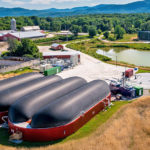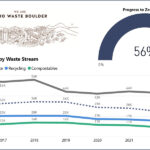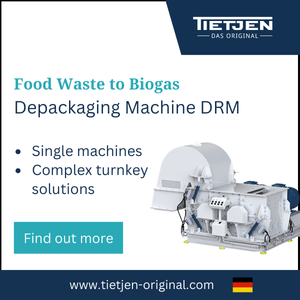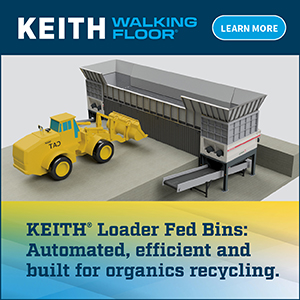Charlotte Morton, Chief Executive of the United Kingdom’s Anaerobic Digestion and Bioresources Association (ADBA), wrote the following in the foreword to “Biomethane: The Pathway To 2030,” an ADBA report released in early March: “Time and time again, prominent organizations with the ear of our government have highlighted biomethane’s vital role in the [current] decade of decarbonization. While the UK’s net zero goal is suitably ambitious, it cannot be achieved without immediate and significant investment in sustainable technologies, such as anaerobic digestion (AD). It is, as the Committee on Climate Change says, a no-regrets option.”
Achieving the 2030 vision in which AD reaches its full potential requires collecting as much organic waste feedstock as feasibly possible to generate biomethane. Based on existing technological efficiency and considering the impact of rising populations and projected reduction of food waste on feedstock availability, the ADBA projects that the UK could generate 5.7 billion m3/year of biomethane by 2030, enough to heat 4.5 million homes. “Assuming a conservative improvement in plant efficiency of 25%, these figures could rise to 7.1 billion m3/year, enough to heat 5.5 million homes,” notes the report.
“With emerging power-to-gas technology, the biomethane potential could increase to 8.0 billion m3/year by adding hydrogen to the AD process to boost the methane content of the biogas generated, equivalent to heating 6.4 million homes. This would deliver a carbon saving of 27.2 million metric tons of CO2 equivalent/year — 6% of the UK’s current annual emissions —specifically within the hardest to decarbonize sectors.”
Priority policy steps needed to reach the goals for biomethane include:
- Immediate support for renewable heat, including biomethane production, beyond 2021
- Extension of the Renewable Transport Fuel Obligation beyond 2032, including a price guarantee
- Funding for innovation
- Establishment of resource hierarchies for all organic wastes with AD as the optimal recycling technology
- Development of a renewable biofertilizer obligation
- Support for local circular economy projects around food waste recycling through AD into heat and power generation
“Our sector has seen periods of very strong growth in the last decade as a direct result of supportive policy, but this has stalled in recent years due to the withdrawal of support,” noted Morton. “The next 10 years, dubbed the climate decade, are our last chance to reverse the climate crisis. In the face of the climate emergency, AD is not an option, it’s a necessity, and a technology that needs to be fully deployed now to create the healthy environment and healthy green economy that the UK needs.”













